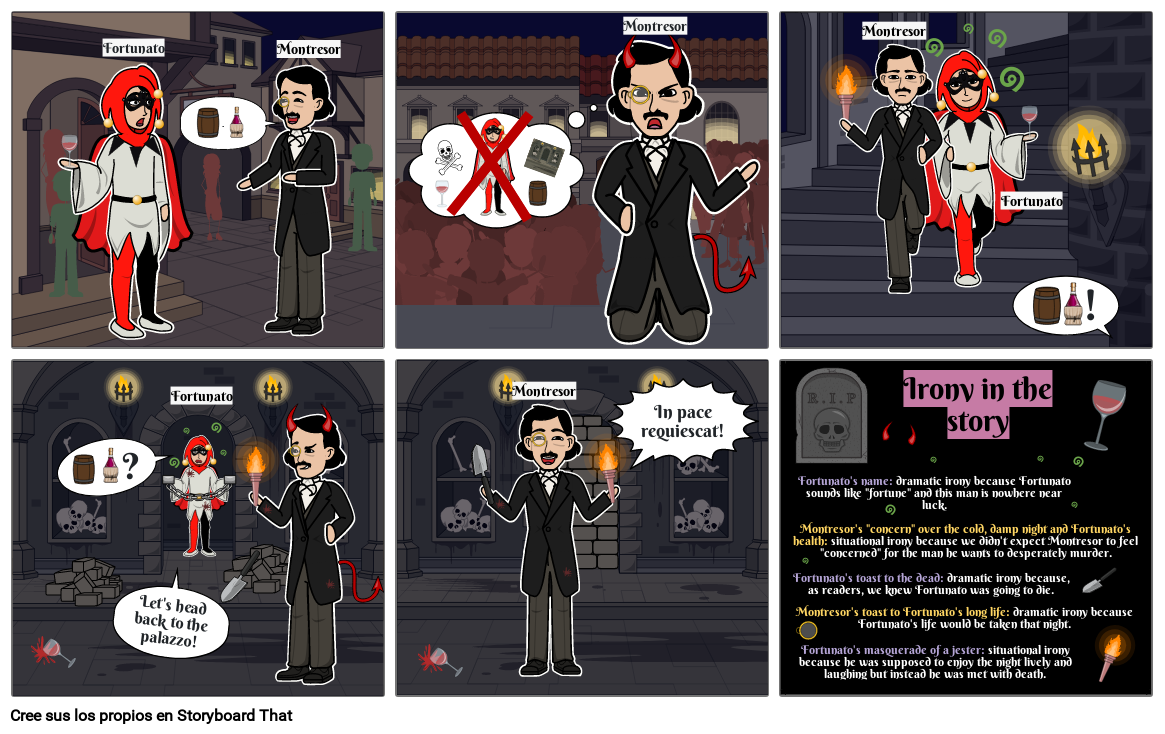The Cask Of Amontillado Comic Strip by Isis Sorto, 9A

Storyboard Text
- ๑
- Montresor's toast to Fortunato's long life: dramatic irony because Fortunato's life would be taken that night.
- Fortunato's toast to the dead: dramatic irony because, as readers, we knew Fortunato was going to die.
- Montresor's "concern" over the cold, damp night and Fortunato's health: situational irony because we didn't expect Montresor to feel "concerned" for the man he wants to desperately murder.
- .
- Fortunato's masquerade of a jester: situational irony because he was supposed to enjoy the night lively and laughing but instead he was met with death.
- Fortunato's name: dramatic irony because Fortunato sounds like "fortune" and this man is nowhere near luck.
- Montresor's "concern" over the cold, damp night and Fortunato's health: situational irony because we didn't expect Montresor to feel "concerned" for the person he's desperately trying to murder.
- Fortunato
- ๑
- ?
- Irony in the story
- ๑
- ๑
- Fortunato
- ๑
- ๑
- .
- ๑
- ๑
- ๑
- Fortunato
- In pace requiescat!
- ๑
- ๑
- Let's head back to the palazzo!
- .
- ๑
- Montresor
- .
- Montresor
- ๑
- ๑
- !
- Montresor
- Montresor
- Montresor
- Montresor
- Montresor
- ๑
- ๑
- ๑
Vytvořeno více než 30 milionů Storyboardů

